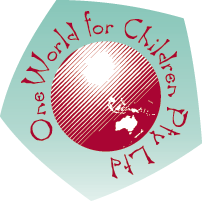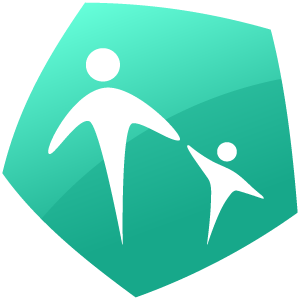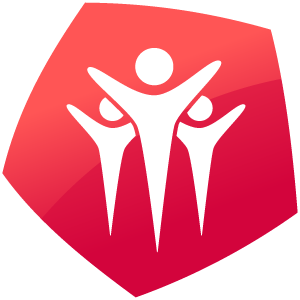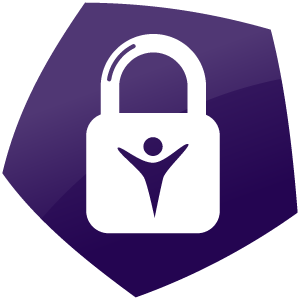Workshops/Inservices
Professional Support Program - Workshops Online
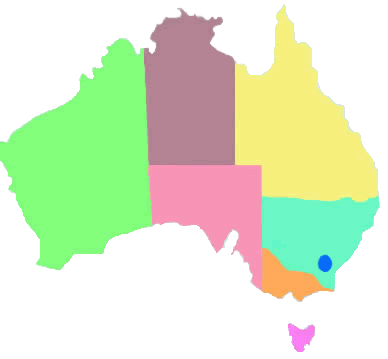
|
| Group | Title | Description | Session | ||||||||||||||||||||||||||||||||||||||||||||||||||||||||||||||||||||||||||||||||||||||||
|---|---|---|---|---|---|---|---|---|---|---|---|---|---|---|---|---|---|---|---|---|---|---|---|---|---|---|---|---|---|---|---|---|---|---|---|---|---|---|---|---|---|---|---|---|---|---|---|---|---|---|---|---|---|---|---|---|---|---|---|---|---|---|---|---|---|---|---|---|---|---|---|---|---|---|---|---|---|---|---|---|---|---|---|---|---|---|---|---|---|---|---|
Miscellaneous

| Beyond blu-tac, strings on ceilings and dirty easels: Why aesthetics matter? With Anthony Semann | So did the title get your attention? Did it make you stop and think? Did it strike a cord with you? Then perhaps this is the online course for you. We will take a journey through aesthetics, environments, and learning spaces. Environments do matter and children are able to read the state of the indoor and outdoor environment. We will in our time together take a journey and debate the often undebatable topic of beauty and aesthetics. Cost $75 Please note: Special Presentations are not included in individual Annual Service Memberships. | |||||||||||||||||||||||||||||||||||||||||||||||||||||||||||||||||||||||||||||||||||||||||
| Miscellaneous
| Building bridges and lighting fires | In every workplace there are some relationships that can be more difficult to manage. Personalities, attitudes and beliefs all play a significant role in why we may find others challenging and hard to get along with. This workshop focuses on learning strategies to deal with difficult people and reflecting on ourselves and the way we react to these people. Participants will learn ways to deal with others who have created fires (upsets, negativity) in the workplace and built a bridge (barrier) seemingly impossible to return from to work alongside the team. Learning Outcomes
Designed for: All educators. All service types Quality Area: 4 + 7 EYLF Outcome:Principles and practices | |||||||||||||||||||||||||||||||||||||||||||||||||||||||||||||||||||||||||||||||||||||||||
| Leadership, Miscellaneous
| Calling all team members | A strong cohesive team is the cornerstone to success in any workplace. Whether you are a team member at your service, a leader who is responsible for a group of educators or the owner of your service, there are things you can do to make the teams in your workplace stronger and in turn your service a less stressful, and a more enjoyable and productive place to spend the day. We will explore how you ensure your workplace atmosphere resembles that of a caring community of professionals where mutual support and appreciation abound as well as considering how your confidence in your own ability to think and cope with the everyday challenges of working within children’s services influence your teams esteem. Learning Outcomes
Designed for: All educators. All service types Quality Area: 4 & 7 EYLF Principles and Practices | |||||||||||||||||||||||||||||||||||||||||||||||||||||||||||||||||||||||||||||||||||||||||
| Health and Safety, Leadership, Program Planning, Miscellaneous, Development
| Celebrating diversity in the team | Take a look at what culture is and ways we can define this, appropriate interactions and customs we must use , practicing patience, using humor, looking at differences from alternative perceptions, being prepared to make mistakes, learning to be an ally, getting to know individuals, listening to others stories, asking questions, making an overall effort and being sincere. Via identifying the needs of our culturally diverse co-workers and families, we can plan, ahead and gain an understanding of the importance of cultural consultation and support networks.
Learning Outcomes
Designed for: All educators. All service types Quality Area: 1, 4 & 7 EYLF Practices and Principles | |||||||||||||||||||||||||||||||||||||||||||||||||||||||||||||||||||||||||||||||||||||||||
| Health and Safety, Leadership, Program Planning, Miscellaneous, Development
| Conflict in the Workplace | Discover the common foundations built around conflict situations, why we can and do argue, difficulties we face when dealing with conflict and how we can personally adapt and accommodate this within our job role and responsibilities. Learn strategies and the utilisation of specific steps we can undertake when we are dealing with conflict and important elements we should and shouldn’t implement to ensure best possible outcomes and relationships within the workplace. Learning Outcomes
Designed for: All educators. All service types Quality Area: 4 & 7 EYLF Practices and Principles | |||||||||||||||||||||||||||||||||||||||||||||||||||||||||||||||||||||||||||||||||||||||||
| Miscellaneous
| Cultural Competence - Celebrations and Festivities | The sensitive inclusion of religion and celebrations into children’s services can be an enriching experience for children, staff and families. Celebrations bring people together and create feelings of community and belonging. Emphasis is placed on ways celebrations and religions can be acknowledged in a manner which offers families choices about whether, or how much they want to participate in such events. Let’s work together to establish a respectful approach to celebrations and festivities. Learning Outcomes
Designed for: All educators. All service types Quality Area: 1 EYLF Outcome: 1 & 2 | |||||||||||||||||||||||||||||||||||||||||||||||||||||||||||||||||||||||||||||||||||||||||
| Miscellaneous
| Dealing with Difficult People | In every workplace there are some relationships that can be more difficult to manage. Personalities, attitudes and beliefs all play a significant role in why we may find others challenging and hard to get along with. This workshop focuses on learning strategies to deal with difficult people and reflecting on ourselves and the way we react to these people. Participants will come away with increased confidence in handling even the most heated disagreements. Learning Outcomes
Designed for: All educators. All service types Quality Area: 4 + 7 EYLF Outcome:Principles and practices | |||||||||||||||||||||||||||||||||||||||||||||||||||||||||||||||||||||||||||||||||||||||||
| Program Planning, Miscellaneous
| Discovering Learning Stories | If the word “learning stories” has been used around your service and you have been thinking “what is all the fuss about?”, then we invite you to attend this session to gain an understanding of this flexible documentation tool. Learning stories allow educators to plan experiences that are focused on the child, that come from the child’s lead and are based on children’s observed interests. Join this session to gain knowledge about using learning stories in your program. Have the opportunity to discuss any questions you may have in learning more about learning stories. Learning Outcomes
Designed for: All educators. All service types Quality Area:1 EYLF Outcome: 1,3,4 & 5 | |||||||||||||||||||||||||||||||||||||||||||||||||||||||||||||||||||||||||||||||||||||||||
| Program Planning, Miscellaneous, Development
| Exploring Art | Creating art is a fine way for children to make choices and solve problems. Every step involves deciding what colour to use, how to make a line, what size to make something. With every choice the object becomes more and more their own. Join this session to learn about the importance of creative arts and how to expose children to a variety of materials so that they can create art. Learning Outcomes
Designed for: All educators. All service types Quality Area: 1 EYLF Outcome: 4 & 5 | |||||||||||||||||||||||||||||||||||||||||||||||||||||||||||||||||||||||||||||||||||||||||
Leadership, Miscellaneous

| Friendships in the Workplace | Can you really be friends with everyone you work with? You may have nothing in common with any of your co-workers, but a professional friendship can benefit everyone in the organisation by creating a supportive environment contributing to productivity.
Join this session and see how you can benefit from workplace friendships in your organisation, and how you can be a better professional friend. Ideal for: Qualified Child Care Workers, however appropriate to ALL levels Quality Area: 7 EYLF Principles and Practice | |||||||||||||||||||||||||||||||||||||||||||||||||||||||||||||||||||||||||||||||||||||||||
| Health and Safety, Miscellaneous
| Healthy Eating Habits | Healthy eating habits make for a pleasant and sociable mealtime experience. Discover how you could provide opportunities to help children develop positive attitudes about healthy foods and learn appropriate eating patterns, mealtime behaviour, and communication skills to assist them in developing healthy eating habits.
Ideal for: ALL Child Care Workers Quality Area: 2 EYLF Outcome: 1,2 | |||||||||||||||||||||||||||||||||||||||||||||||||||||||||||||||||||||||||||||||||||||||||
| Leadership, Miscellaneous
| Influences on Leadership | There are countless personality traits that distinguish us from one another, some inherited while others are learned. There isn't much debate about the idea that leadership style grows out of personality type. Just as the unique gifts associated with each personality type contribute to society, they also contribute to the many different types of leadership needed to keep the world moving forward. Discover your own leadership style and personality traits by joining this session. Learning Outcomes
Designed for: All Qualified educators. All service types Quality Area: 7 EYLF Practices and Principles | |||||||||||||||||||||||||||||||||||||||||||||||||||||||||||||||||||||||||||||||||||||||||
| Leadership, Miscellaneous
| Leading your Team Effectively | Great leaders are captives. They are captivated by a clear sense of purpose and they rally others around that purpose.
Great leaders also have vision. Vision involves having a clear picture of a meaningful future that you are committed to and passionate about creating. If you are looking to enhance your leadership skills, and to improve workplace effectiveness, join us as we take you on a unique journey where you will make new discoveries about yourself and your work team, along the way. Learning Outcomes
Designed for: All Qualified educators. All service types Quality Area: 7 EYLF Practices and Principles | |||||||||||||||||||||||||||||||||||||||||||||||||||||||||||||||||||||||||||||||||||||||||
| Miscellaneous
| Managing Resistance to Change | Changes both big and small need to be implemented into every service, change comes with many different opinions, views, attitudes and behaviours from those we are working with. This session focuses on ways to manage and support those around you when the need for change arises including reasons why educator's can become unwilling or unresponsive to roles and responsibilities expected of them. Learning Outcomes
Designed for: All Qualified Educators. All service types Quality Area: 7 EYLF Outcome:Principles and practices | |||||||||||||||||||||||||||||||||||||||||||||||||||||||||||||||||||||||||||||||||||||||||
| Program Planning, Miscellaneous, Development
| Music and Movement | Music and movement are inside each child. All caregivers do is let them out. That is good news for those of us who are not gifted in these areas. It tells us that all we need to do is encourage, not "teach" music and movement. In this online session, we will share some ideas that may help you "let the music out."
Ideal for: ALL Child Care Workers Quality Area: 1 EYLF Outcome: 4,5 | |||||||||||||||||||||||||||||||||||||||||||||||||||||||||||||||||||||||||||||||||||||||||
| Program Planning, Miscellaneous, Development
| Planning for an Anti-Bias Curriculum | Planning for an anti-bias curriculum, promotes positive attitudes towards diversity and to counter stereotypes and discrimination. It is evident that young children notice diversity, that they make evaluative judgements about differences and that they develop biases from a young age. Join the discussion in this session about the importance of planning and implementing an anti-bias curriculum. Learning Outcomes
Designed for: All educators. All service types Quality Area: 1 & 3 EYLF Outcome: 1, 3 & 6
| Leadership, Miscellaneous
| Reflecting on yourself and the curriculum
| Have you ever taken the time to look at yourself in a mirror and reflect on yourself as a leader? What style of leadership reflects back at you? Some of us may be searching for the impossible, and that is a clear, prescriptive answer to becoming a perfect leader! The capacity to reflect on any action is to engage in a process of continuous learning. This is one of the defining characteristics of professional practice! Join this session to reveal to yourself and others your qualities as a leader. Come up with your own “prescriptive answer”, who knows you may just find the winning solution! Learning Outcomes Designed for: All Qualified educators. All service types Quality Area: 7 EYLF Principles and Practices
| Miscellaneous
| Relaxation and Yoga for children - creating calming environments
| A calming environment for children to play and learn is an essential part all children’s wellbeing. This session explores how resources and strategies can help you create this beneficial calming environment. We will look at specific yoga and relaxation techniques for children. Yoga is appreciated and enjoyed by children of all ages, however a children’s Yoga session is vastly different to an adult’s class. The key to being successful when introducing Yoga to children is in the way it is presented to them. Yoga is a whole system and is built on three main structures: exercise, breathing and meditation. This session will demonstrate how regular daily practices of the structures of Yoga, produces a clear, bright mind and a strong, capable body.
Learning Outcomes Designed for: All educators. All service types Quality Area: 2 EYLF Outcome: 3 & 4
| Miscellaneous, Development
| School Readiness
| The transition from early childhood services to school can be a time of great stress for parents and children alike. Parents often look to early childhood professionals for advice. Alternatively, for some early childhood professionals it can be difficult to express differing views to parents when they feel a child is or is not ready for this transition. This session will examine the key indicators of school readiness and look at strategies for providing parents with the necessary information to make appropriate decisions about a child’s transition to school. Learning Outcomes Designed for: All educators. All service types Quality Area: 1 EYLF Outcome: 1,3,4 & 5
| Miscellaneous, NEW
| Shared Partnerships with Families
| Focusing on a collaborative, shared relationship with families is essential in attaining quality outcomes for children. How many educators are of the opinion that too many families are too busy or seem uninterested in their child’s day? If we as professionals work collaboratively with families to meet their individual communication needs, together with some help from this session in discovering creative communication ideas, you can start implementing a shared relationship with families today! Learning Outcomes Designed for: All educators. All service types Quality Area: 4 EYLF Outcome: 1
| Miscellaneous
| 

Special Presentation - Coaching and mentoring strategies in leadership with Semann and Slattery
| Coaching and mentoring is often touted as a way of leading in early and middle childhood settings. This session will examine the what mentoring and coaching actually is and how we, as leaders, can use more solution focused approaches in our conversations with colleagues that draws out the best in them.
|
| Miscellaneous, EYLF
| 
Special Presentation - Diversity and difference in Early Childhood with Anthony Semann
| The world is rich in diversity and difference and this is a gift of difference entering the early childhood space. Diversity in families, children and staff and the ways in which we work with diversity and difference can be both enriching as well as challenging. During this online program we will explore a range of issues including, how do we celebrate difference authentically, how might we navigate the challenges of difference and what might a curriculum with links to diversity look like in practice
|
| Miscellaneous
| 
Special Presentation - Educator’s Toolkit for Behaviour - with Sandi Phoenix
| Exploring the tools that educators use to guide children’s behaviour and social decisions Join this Special Presentation delivered by Sandi Phoenix, the founding company director and Principal Facilitator at Phoenix Support for Educators. Her qualifications include a Bachelor of Psychological Science.
| Miscellaneous, EYLF
| 

Special Presentation - Emotional Intelligence with Dr Louise Porter
| Our emotions guide us to face challenges and tasks that are too important to leave to the intellect alone. Emotional intelligence, then, is the ability to integrate thinking and emotions to produce effective behaviours.
To do this, we need to understand our emotions. However, we can become muddled if we mistake thoughts for feelings. When we allow our feelings to dictate how we live our life, we are like a puppet on a string, being jerked around by our emotions.
Therefore, it is important that, just as we call a spade a spade, we call a thought a thought, and an emotion an emotion. To that end, this session will describe three ‘fake’ feelings. These are merely thoughts that we have chosen to invite in and entertain – but when we give them the status of emotions, we believe that we are justified to act on them and to make other people suffer for ‘causing’ them. Once we understand that they are mere thoughts (or stories in our heads), we will be less distressed and therefore more able to process information clearly, and less likely to blame others and expect them to ‘fix’ what we are feeling. We will be emotionally literate.
|
| Miscellaneous, EYLF
| 
Special Presentation - Guiding Children's Behaviour with Dr Louise Porter
| In this seminar, Louise Porter will identify why we should not reward or punish children for their actions. First, children who want to please us do not need to be punished when they make mistakes, because they are already remorseful and, therefore, do not need to be 'taught a lesson'. In contrast, nonconformist children (who value being in command of themselves) are prepared to risk our displeasure to prove to us that we can't make them do things. The more we try to control these spirited children through rewards and punishments, the more rebellious they get. In other words, rewards and punishments (consequences) are unnecessary for one group of children and counter-productive for the other group.
In this session, Dr Porter will details alternatives, including giving positive feedback without praising; and supporting children to regain command of their own emotions, rather than punishing them for becoming out of control.
|
| Miscellaneous
| 
Special Presentation - Lets Analyse Behaviour - with Sandi Phoenix
| Exploring behavioural meltdowns and complex inclusion challenges Join this Special Presentation delivered by Sandi Phoenix, the founding company director and Principal Facilitator at Phoenix Support for Educators. Her qualifications include a Bachelor of Psychological Science.
| Miscellaneous
| 

Special Presentation - Resilience, Attachment and Mental health in Early Childhood - with Lyn Worsley
| The workshop will give an overview of the attachment process, and show how this dynamic process contributes to the development of resilience. An overview of the Resilience Doughnut model along with current theories of emotional regulation will be presented in a practical way. Participants will have an understanding of their own attachment style and how this may affect the children in their care. Join this Special Presentation delivered by Lyn Worsley, Clinical Psychologist with a background in early childhood and tertiary education teaching, nursing and youth work. Lyn is the also the director of the Resilience Centre in Epping, as well as the author of the Resilience Doughnut model.
| Program Planning, Miscellaneous
| STEM learning with children
| STEM – science, technology, engineering and maths – are a part of everyday life for today’s children. Children’s play is filled with opportunities to hone in on their STEM skills. You might see this incidentally when they measure an ingredient for a sandpit cake or in an intentional teaching moment when they get excited as the vinegar reacts with the bi carb in the volcano. When children are presented with the right opportunities to investigate and manipulate a wide range of resources and materials they can develop and consolidate the concepts and skills that set them up as a competent STEM learner. Join us as we explore the value of Stem learning for children, planned and spontaneous experiences that facilitate STEM based learning as well as the educator’s role in supporting this. Learning Outcomes Designed for: All educators. All service types Quality Area: 1 & 3 EYLF Outcome: 4 & 5
| Miscellaneous
| Stress Management
| Stress management among educators is an important issue. Too much stress can not only affect your own health, but also the quality of care that you are able to give to children. An Educator who is feeling too much stress may not be able to offer quality care to the children or themselves. Come along to this session and learn how to “de-stress!” Learn strategies of ways to seek support and ask for help, take time out and the art of saying 'NO' to others when we are feeling overloaded and over committed. Explore the value of talking about our stress and emotions with others and most importantly making time for ourselves to do the things we really enjoy! Learning Outcomes Designed for: All educators. All service types Quality Area: 4 & 7 EYLF Principles and Practices
| Leadership, Behaviour, Miscellaneous, Development
| Supporting Children with Autism
| It may seem that more and more young children are now being diagnosed with an Autism Spectrum Disorder. Whether mild or high-functioning, children affected often find it difficult to communicate, both linguistically and socially, and have difficulty with imaginative play and flexibility. Children may also go through times of acute stress and experience ‘melt-downs’. | This session will outline the different kinds of Autism Spectrum Disorders, how to recognise symptoms and more importantly how to support both children and their families. Learning Outcomes Designed for: All educators. All service types Quality Area: 1,3 & 5 EYLF Outcome: 1,2 & 3
| Miscellaneous
| Surviving Routines
| Routines are familiar aspects of the day which children can anticipate and understand.
They serve as a framework around which the child’s day is organised,
and enables the child to develop a sense of the passage of time.
Without careful planning, routines can be a source of stress and unhappiness for both children and staff alike. This online session has been designed to help you plan routines that are responsive to the individual needs of the children in your care.
You will be able to access a number of formats and sample routines that you will be able to download and use as part of your own development of routine times.
| Ideal for: Qualified Child Care Workers, however appropriate to ALL levels Quality Area: 3 EYLF Outcome: 1,2,4
| Miscellaneous
| Sustainable Practices
| Clearly, we must understand and recognise the impact our lifestyles have on our environment and devise ways in which to minimise these effects. More importantly, we have a responsibility to maximise the opportunities available to us in our daily work to develop ethically sound environmental attitudes and behaviours in the young children in our care. This session will enable the children to be empowered with the necessary skills, attitudes and knowledge to deal with and find responsible solutions to environmental challenges they will face in their adult years. Learning Outcomes Designed for: All educators. All service types Quality Area: 1 & 3 EYLF Outcome: 2
| Miscellaneous
| Theory of Excellence
| What are your own personal theories on how to provide and implement best practice? Ideal for: Qualified Child Care Workers Quality Area: 7 EYLF Principles and Practice
| Miscellaneous
| Top 10 Frustrations Working in Childcare
| There would be very few people who would argue against the fact that the most important asset for any community is our children. But those who care for and nurture those children – child care workers, are pivotal in contributing beyond just the physical health of children.
Working within the rewarding profession of children’s services, brings with it many frustrations as working as a director, qualified child care worker or as an untrained child care worker.
This session invites you to actively shape the delivery of this session by submitting your most “frustrating” moments about working in children’s services, regardless of sector.
Some examples may be: Lack of respect as a qualified; workplace gossip; the storeroom that is ALWAYS a mess; challenging parents; lack of resources; unorganised routine… and many more.
Enrol into this session, then you will be asked to submit some specific frustrations that we can help you with.
| Ideal for: All Child Care Professionals Quality Area: 7
EYLF Principles and Practice We often forget the importance of specific guidelines we should be adhering to when using social media, what is and isn’t appropriate to be publishing and the times in which we are utilising our devices to communicate with others. Discover the correct and most effective ways to use social media to benefit your workplace and others. What is and isn’t appropriate publishing content and why! Learning Outcomes Quality Area: 6 EYLF Outcome: 7 Early childhood professionals are often in a dilemma about how to deal with challenging play based on superheros or war play. This interactive session will examine the underlying difficulties this play may create for educators and children, and look at ways we can channel this play into a positive and enhancing experience for everyone. Designed for: All educators. All service types Quality Area: 1 EYLF Outcome: 1, 3 & 4 “It takes two to work together, but it also takes two to fight. And often, it only takes one to begin the first step towards a peaceful solution. (Scholes & Ingpen, 1989)
Ideal for: ALL Child Care Workers Quality Area: 4 & 7 EYLF Outcome: 1,3,4 In constructing environments with children, the use of natural materials and play spaces, allows each child to participate and engage in their own unique way. This engagement enhances children's relationship with their environment and supports their growing curiosity and exploration which leads to many learning opportunities. |
